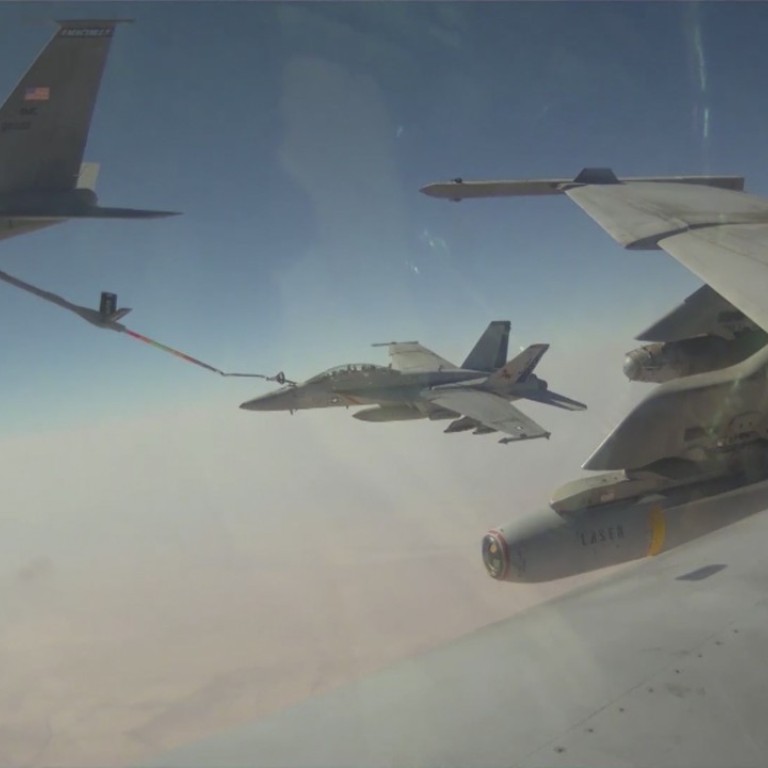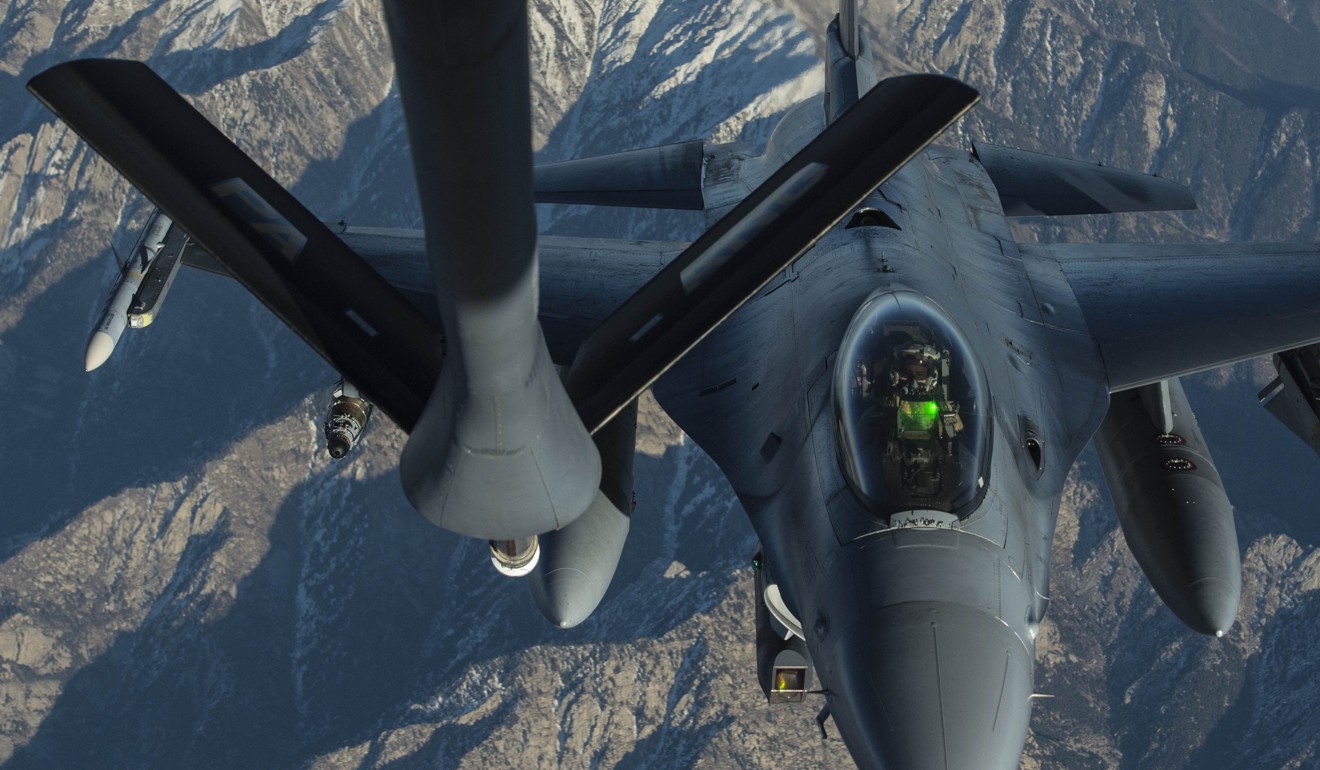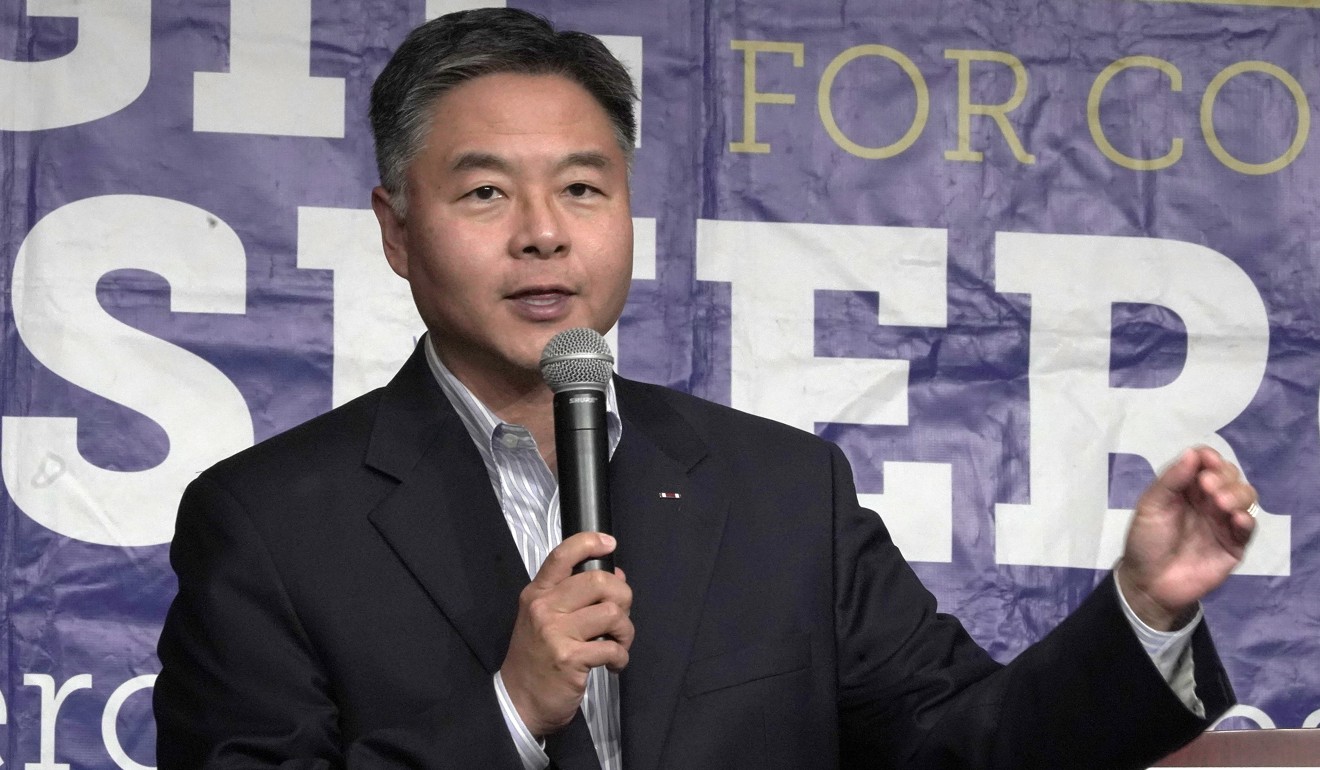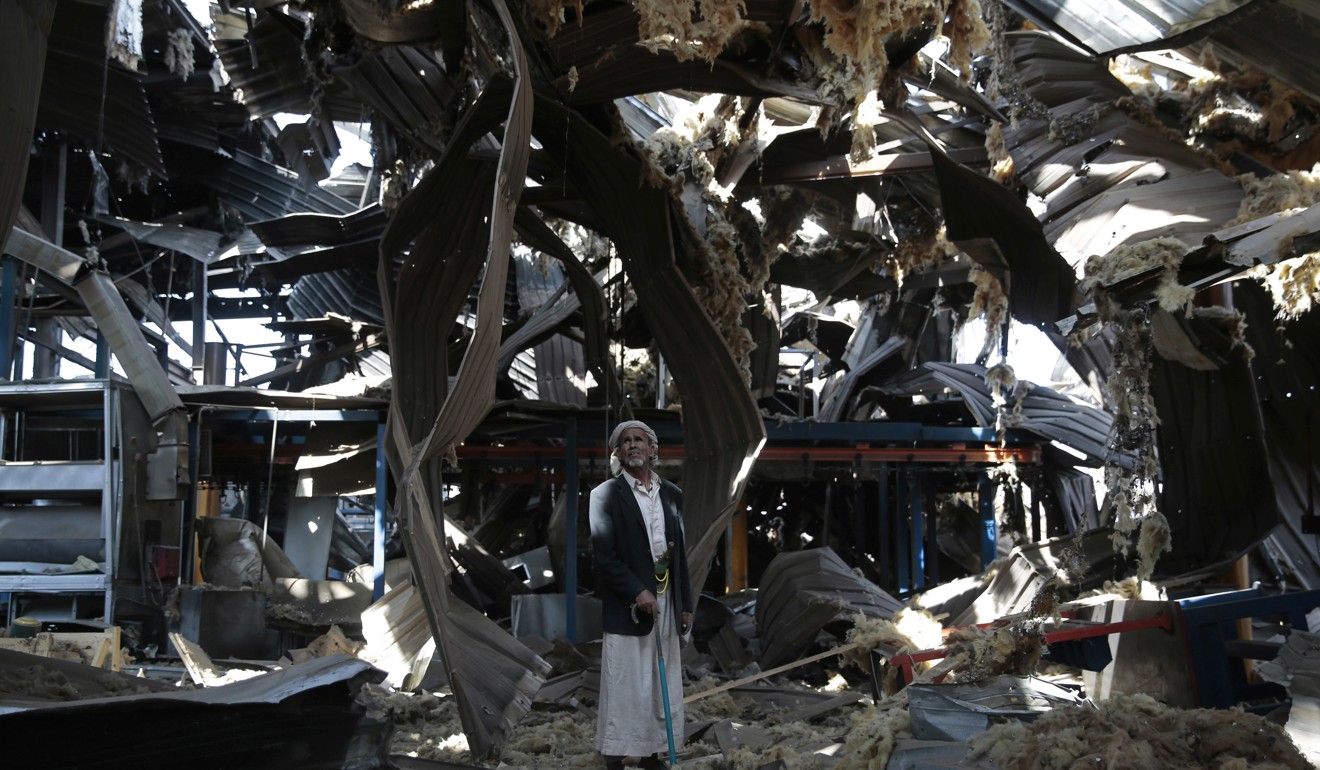
US to stop mid-air refuelling of Saudi-led coalition aircraft attacking Yemen
- Move welcomed but military officials say it will have little impact on war as only a fifth of coalition aircraft need in-air refuelling by US
The United States is to stop refuelling aircraft from the Saudi-led coalition attacking Yemen, Saudi Arabia said on Saturday, a move that would end one of the most divisive aspects of US military help to the Saudis.
Riyadh said it had decided to request an end to US aerial refuelling for its operations in Yemen because it could do it itself.
A US official, speaking on condition of anonymity, said Washington supported the Saudi decision.

The change came at a time of international outrage over the murder of US-based Saudi journalist Jamal Khashoggi, and after Democratic and Republican lawmakers threatened to take action in Congress next week over the refuelling operations.
Critics of the Saudi campaign have long questioned US involvement in the war, which has killed more than 10,000 people, displaced more than 2 million and led to widespread famine in Yemen since it began in 2015.
“I’ve been calling for this for over three years,” said Representative Ted Lieu, a Democrat from California. “We shouldn’t be supporting coalition war crimes and I look forward to continuing to scrutinise the US’s role in Yemen when we’re in the majority next Congress.”

Even as President Donald Trump’s administration has condemned Khashoggi’s murder, the White House has sought to preserve its relationship with Saudi Arabia.
Any coordinated decision by Washington and Riyadh to stop refuelling could be an attempt by both countries to delay further action by Congress.
Senators Todd Young, a Republican, and Jeanne Shaheen, a Democrat, warned the Trump administration it was running out of time to act.
“If the administration does not take immediate steps... we are prepared to take additional action when the Senate comes back into session,” they said.
The Pentagon, State Department and White House declined to comment.

Earlier this year, Defence Secretary James Mattis defended US military support to Saudi-led coalition forces in Yemen, when lawmakers weighed forcing the Pentagon to end Washington’s involvement in the conflict.
Mattis argued that stopping US military support could increase civilian casualties, since US refuelling gave pilots more time to select their targets. He told them cutting off support could jeopardise cooperation on counterterrorism and reduce American influence with Saudi Arabia.
But stopping refuelling would have little practical impact on the war. US officials say only a fifth of Saudi-led coalition aircraft require in-air refuelling from the US.
In recent weeks, Mattis has appeared to voice a growing sense of urgency towards ending the conflict. At the end of October, Mattis joined US Secretary of State Mike Pompeo in calling for a ceasefire.

